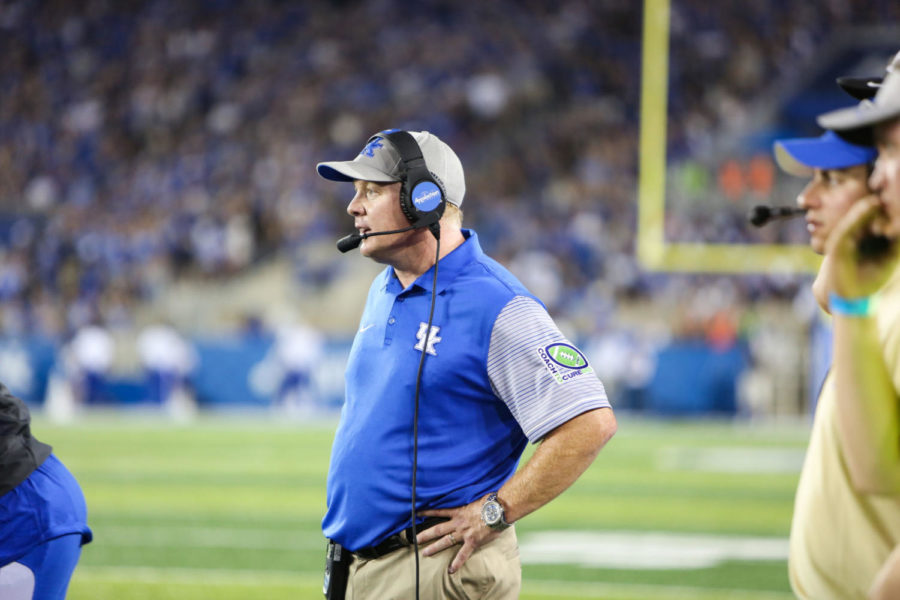Football coaches at an advantage in negotiating contracts
Stoops looking onto the field at Commonwealth Stadium on Saturday, September 24, 2016 in Lexington, Ky. Kentucky defeated South Carolina 17-10. Photo by Lydia Emeric | Staff
November 1, 2016
Several UK students started off football season by wondering why a losing team does not make some serious leadership changes (aka why has UK not fired Coach Stoops). However, according to an article in USA Today College, schools across the nation are facing that same problem.
There is one key issue when it comes to hiring and firing coaches, and that is the buyouts. Football coaches are some of the highest paid college employees – even if they get fired. So why do schools enter into these seemingly useless, and often money-losing, contracts?
Since football is such a lucrative sport, coaches need to have potential, and coaches with potential want a good deal. And these deals are getting better and better, often reaching into double digits (in millions of dollars).
What gives even losing football coaches so much leverage is that they are a huge money maker for a school. Colleges come to the negotiating table full of optimism and excitement, while coaches come with experienced agents and strategic requests.
Many coaches, including our very own Coach Stoops, receive guaranteed payment (often $3 million+) even if they are fired, which makes firing a coach potentially more expensive than literally taking the loss.
So the next time you wonder why Stoops hasn’t been booted, remember that the process is much more complicated than you think, much like the game, itself.
To read the full article in USA Today College, click here.
































































































































































